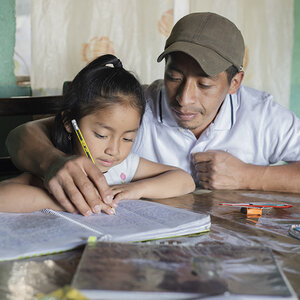Seven organizations partner to support education in Central America

A coalition of seven funders has announced a three-year, $1.5 million commitment in support of an initiative designed to complement public education systems in Central America as they rebound from the COVID-19 pandemic.
RECARGA–Recuperando la Educación en Centroamérica: Activando Redes y Grupos Asociados (Educational Recovery in Central America: Supporting the Critical Role of Civil Society) aims to address the needs of young people in Central America with limited access to quality education and all the services and support that come with it through innovation and technical leadership. The RECARGA partners include the Tinker, Summit, Luis von Ahn, International Community, and Vibrant Village foundations; the Global Fund for Children (GFC); and Focus Central America.
RECARGA will convene in January and fund a cohort of 12 civil society organizations in Guatemala and Honduras that are working to ensure all children and young people can exercise their right to education. Data on the pandemic’s impacts on education in Central America, while still sparse, suggest that the most damaging outcomes—social disconnection, learning loss, and dropouts—are concentrated among students who already faced significant barriers to educational access, including girls, Indigenous students, and children in rural areas. Each participating organization will receive three years of funding and organizational capacity-strengthening support.
“By joining the RECARGA initiative, we are leveraging our partners’ wisdom and resources, mitigating the burden on the local organizations, and ensuring longer-term impact on the educational outcomes of Central America,” said International Community Foundation senior program officer for education and migration Eliza Brennan.
“We believe community-based organizations can and should play a decisive role in the ongoing recovery of education in Central America,” said Tinker Foundation president Caroline Kronley. “Because they focus on the children most likely to be left out and left behind, these organizations have essential perspectives to offer on how educational systems can improve and evolve moving forward.”
(Photo credit: Getty Images/Fernanda Reyes)




